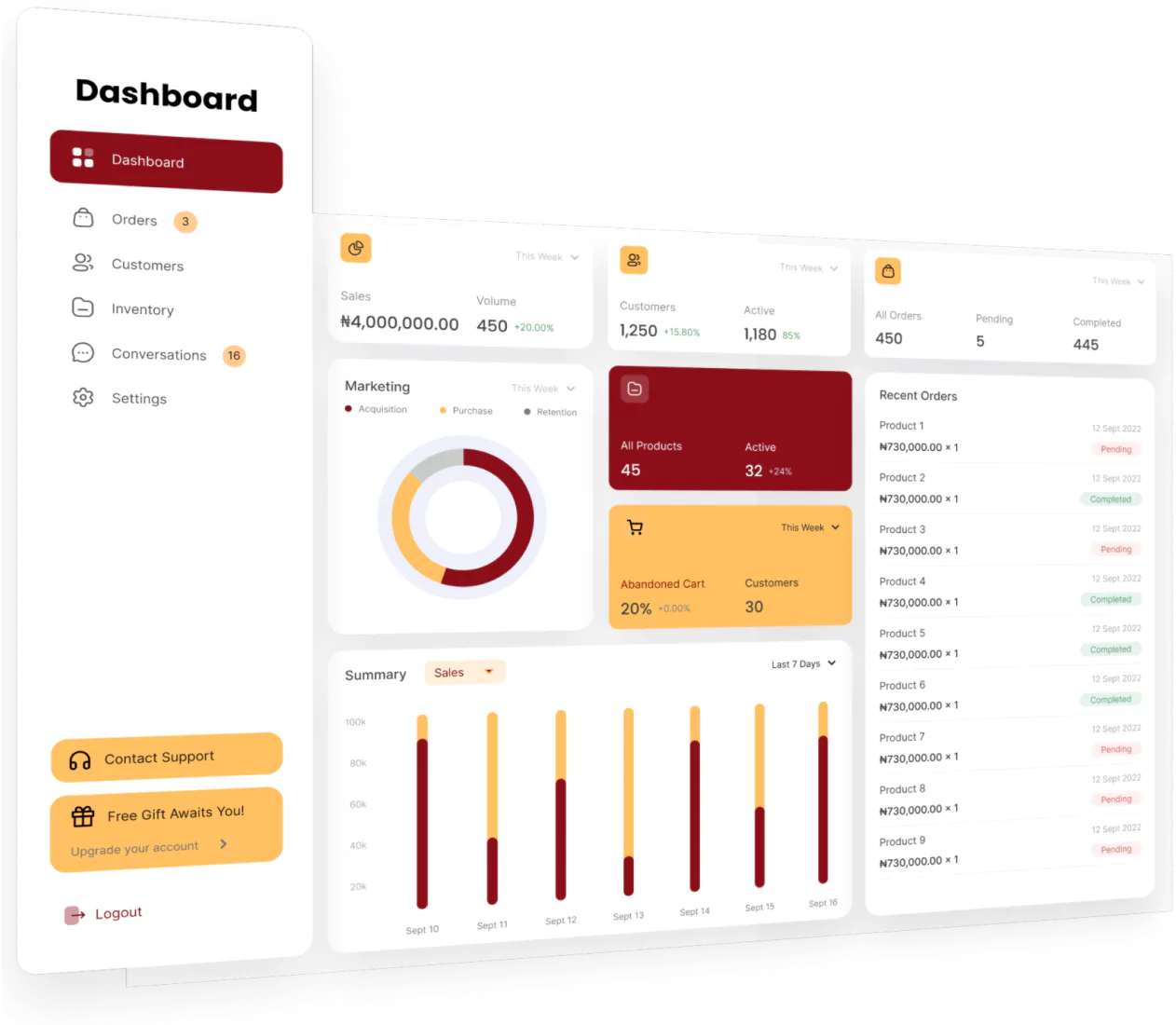In today’s fast-paced business environment, financial transparency and accountability are more important than ever. An audit trail, also called an audit log or documentation trail, systematically records financial transactions, data modifications, and significant activities within accounting software. It tracks essential details such as who made a change, what was altered, and when it happened.
Given that nearly 75% of accounting tasks like cash flow management and invoice processing can now be automated with advanced accounting software, businesses can leverage audit trails to ensure data accuracy and compliance. This automation allows accountants to spend less time on tedious manual tasks and more on strategic planning and advisory roles, significantly enhancing overall financial management.
Key Takeaways
|
Table of Content
Content Lists

What is an Audit Trail?
An audit trail is a detailed record or documentation trail that chronologically tracks financial transactions and activities within a company’s systems. It captures essential information, such as who performed an action, what specifically was changed, and precisely when it occurred, making it critical for financial management and compliance.
Audit trails are particularly valuable in industries like finance and healthcare, where regulations like GDPR, HIPAA, and SOX demand rigorous data security and transparency. Additionally, in qualitative research, an audit trail ensures research methods and findings are documented transparently, allowing others to replicate and verify results.
By maintaining accurate audit logs, businesses demonstrate accountability to regulators, clients, and stakeholders, thereby building trust and ensuring secure financial operations.
What are Audit Trails Used For?
Audit trails serve as critical tools for monitoring business activities, offering clear visibility into every transaction and data modification. They document all interactions within a company’s accounting software, enabling transparent financial management and facilitating prompt identification of irregularities or fraud.
In ERP and financial systems, detailed audit logs allow businesses to detect discrepancies early, safeguard sensitive information, and comply with financial regulations efficiently. This proactive monitoring strengthens data security, optimizes cash flow management, and supports informed, strategic decision-making.
By implementing comprehensive audit trails, businesses enhance trust among clients, partners, and regulatory bodies, demonstrating reliability and robust operational transparency.
Understanding the Purpose of an Audit Trail
Audit trails are vital to secure, efficient, and compliant business operations. Below are the key purposes of maintaining audit logs:
- Enhancing accountability and transparency: Audit trails document each action within accounting software, clearly showing user activities, edits, or deletions. This transparency promotes responsible behavior and swiftly identifies errors or discrepancies.
- Detecting and preventing fraud: Real-time tracking provided by audit logs allows companies to detect suspicious transactions quickly, reducing internal fraud risks and safeguarding financial management processes.
- Supporting compliance requirements: Regulatory standards, such as the Sarbanes-Oxley Act, often mandate comprehensive audit trails to ensure financial accuracy and accountability during external audits.
Types of Audit Trails
Businesses use various types of audit trails to track different activities effectively. Understanding each type helps companies select the best approach for their specific financial management needs:
- User Activity Audit Trails: Track individual user actions, such as logins, data access, edits, and deletions. These logs ensure accountability and quickly highlight unauthorized activities.
- System-Level Audit Trails: Monitor system events like startups, shutdowns, performance issues, or crashes. This type of audit log helps businesses maintain overall system security and operational integrity.
- Application Audit Trails: Specifically record activities within applications like CRM or ERP and accounting software. They document transactions, data modifications, and workflow interactions, aiding precise tracking and management of cash flow and operations.
- Network Audit Trails: Captures network activities, including data transfers and remote access attempts. Crucial for cybersecurity, these logs identify potential threats and prevent unauthorized access.
- Financial Audit Trails: Record detailed financial transactions, documenting parties involved, amounts, and dates. These logs ensure transparency in financial reporting, simplify audits, and protect businesses against fraud.
Selecting appropriate audit trails enhances transparency, protects sensitive data, and ensures regulatory compliance.
Business Advantages of Implementing Audit Trails
 Implementing an audit trail significantly enhances a business’s financial management by promoting transparency and accountability. Accurate audit logs build trust among clients and stakeholders, confirming that financial data and cash flow reports are reliable and secure.
Implementing an audit trail significantly enhances a business’s financial management by promoting transparency and accountability. Accurate audit logs build trust among clients and stakeholders, confirming that financial data and cash flow reports are reliable and secure.
Furthermore, audit trails serve as a powerful tool to prevent financial fraud, allowing accountants and auditors to detect inconsistencies quickly. Industries like healthcare particularly benefit from audit logs, ensuring sensitive data remains secure and complies with strict regulatory standards.
By maintaining robust audit trails, businesses not only reduce risks but also improve operational efficiency, ensuring strategic decision-making based on reliable and verifiable financial data.
Business Disadvantages of Audit Trails
While audit trails offer numerous benefits, businesses may encounter challenges in maintaining them—especially as data volume grows. Managing large audit logs can require significant storage, system resources, and time, particularly for companies without scalable accounting software solutions.
Another concern is data access. If audit logs are not properly restricted, they may expose sensitive information, compromising financial management integrity. Additionally, overly strict compliance requirements—such as during loan assessments—can penalize businesses that lack well-organized documentation, even if they’re otherwise financially healthy.
To minimize these drawbacks, companies should invest in reliable, automated systems that manage audit trails efficiently and securely.
Simplify Audit Trail Management with HashMicro

Managing audit trails manually can be time-consuming and prone to error. With HashMicro’s accounting software, businesses can automate and streamline the entire process, ensuring secure, accurate, and real-time tracking of all financial activities.
Here’s how HashMicro simplifies audit trail management:
- Financial Dashboard: Gain full visibility into your company’s cash flow, with user actions and updates logged automatically for complete transparency.
- Fast Bank Reconciliation: Every transaction and adjustment is recorded, helping match internal records with bank statements seamlessly.
- Analytical Reporting: Monitor changes in reports, track data sources, and ensure every modification is documented for stronger decision-making.
By integrating these features, HashMicro empowers businesses to simplify compliance, reduce risks, and strengthen overall financial management—all while saving time.
Conclusion
A well-maintained audit trail is essential for building trust, ensuring regulatory compliance, and protecting your business from fraud. By documenting every financial action and system interaction, businesses gain deeper visibility into their operations and improve decision-making based on reliable data.
With the help of advanced accounting software like HashMicro, managing audit trails becomes easier, more accurate, and highly efficient. To see how HashMicro can elevate your audit trail and financial management processes, request a free demo today.

FAQ about Audit Trail
-
What is meant by audit trail??
An audit trail is a chronological record of all system activities and financial transactions, showing who did what and when.
-
What is the purpose of audit trails??
Audit trails enhance transparency, ensure compliance, detect fraud, and support accurate financial reporting.
-
What is the difference between audit log and audit trail??
An audit log is a component of an audit trail—it’s the actual file or record that stores the tracked activities.
-
What are the objectives of audit trail??
The main objectives are to maintain data integrity, promote accountability, and meet regulatory and audit requirements.































